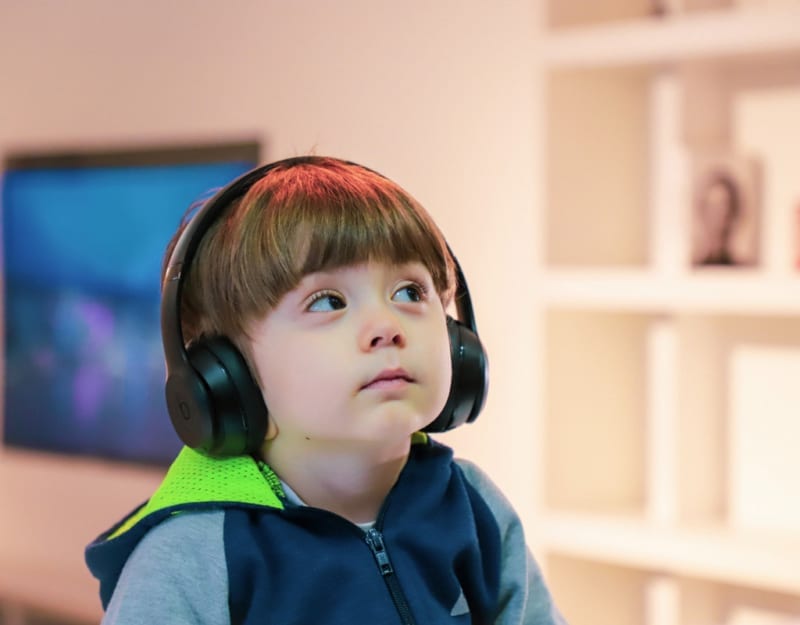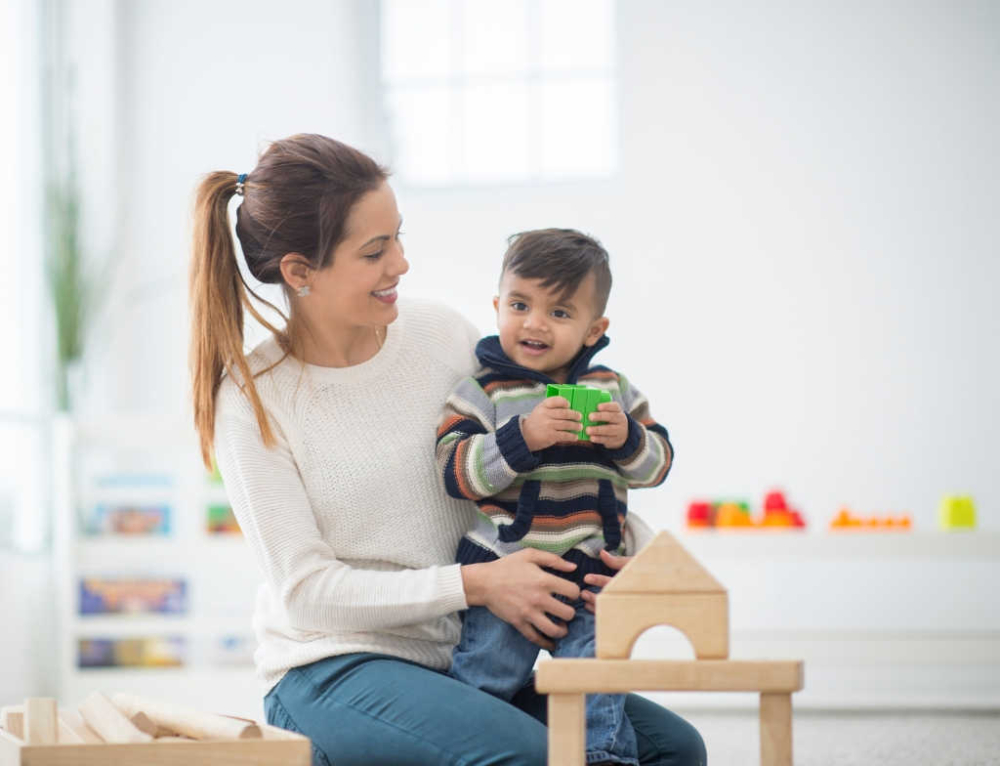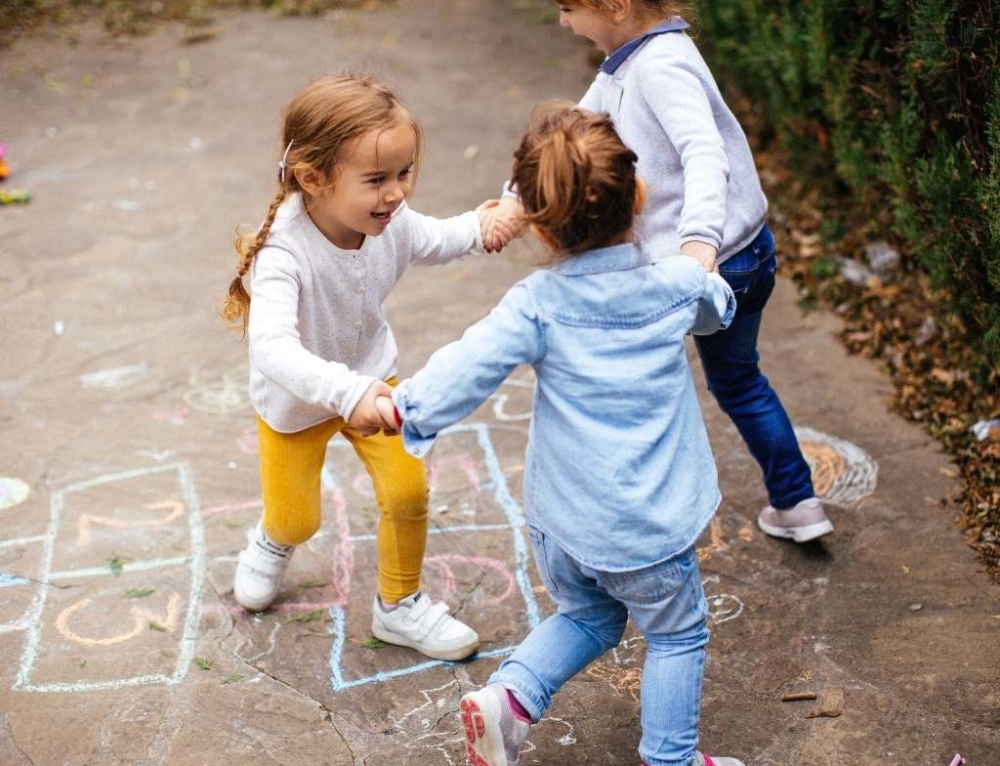Parenting Coach and nurse, Heather Lindsay from Blissed Out Mums, shares expert tips from her Communicating with Children Parenting Program.
Have you ever just wanted to speak, your child listen AND do exactly what you say? I’m sure you have … you’re a mum! We’ve all been there. We need our kids to listen, things have to get done! We have to get out the door, need to get to swimming lessons, toys need to be packed up. If they don’t listen, we resort to yelling just to be heard. Well there is another way.
The solution comes from the world of hypnosis, yes hypnosis. Although we aren’t going to hypnotise our children instead let’s just strategically use specific words and phrases to help influence them to do what we need them to do. Let me share seven language keys to help get your child to listen.
1. Mind-reading
In order for our child to want to listen, our requests of our children should positive and pre-empt any problems that will prevent our child from cooperating with us.
“I know it’s not easy for you to read and we’re going to try this new game to help you.”
In this example it will be easy for you to say “I know … ” because you’re mum and you know your child at the closest level. It’s why mum knows all those little things that make a household run smoothly that insiders don’t know.
2. Double bind
You are probably already using this one! This is where you give your child two alternatives, you want them to chose one, they both end up at the same place but it gives them the illusion of choice. When they have this illusion they are more likely to do what you need them to do.
“You can have a bath now or after doing that puzzle.”
This language technique helps children to feel empowered and respected – so important for their emotional and mental health.
3. Avoiding ‘why’
How many times have you said “Why?” to your child throughout the day? It’s not a useful question. It cements justifications, often negative beliefs or actions and ultimately doesn’t result in a resolution to the problem. Often you’ll be met with the response of “I don’t know … ” Instead there are three questions you should ask:
“What’s the purpose of throwing the toys on the floor?” – This finds the intention or the root cause of the behaviour.
“What specifically are you angry about?” – Finds the purpose.
“How do you know that she doesn’t like you?” – Finds the reason for belief.
Now it is quite possible that your young child may not be able to give you a complete answer to one of these questions, however questioning them in this manner stretches their thinking patterns and grows their neural network.
4. Tag questions
To help motivate our children and get them to do what we want and need them to do we must remove the negative from a situation, displace resistance and get them in the ‘yes’ frame. Basically have them excited to help us do what needs to get done.
“This is fun isn’t it?”
This doesn’t work on a single incident but through regular use. Let’s think of an example.
Putting away the toys: “Let’s put the toys away together. This is fun isn’t it?”
Then the next time “Remember how much fun we had putting the toys away, let’s do it again.” – this will decrease the resistance and they will be more likely to help you tidy up without complaining! Won’t that be a bonus.
5. Make things positive
This is about embedding into the unconscious mind the positive.
“It’s fun to learn like this isn’t it?”
This is really good for children when you’re doing homework especially in the early years when you want to create a positive foundation for learning. Even though your child may turn around and say “no” or have a tantrum, they have still heard the phrase “fun to learn” and this is what is embedded into their unconscious mind so it puts a more positive spin on learning.
6. Empathise with their experience
When your child is struggling with something and you know why they are and the positive outcomes that will come after this hard part you can future pace them and give them resources to help manage the current struggle.
“I know that you don’t want to put the toys away but when we’ve put them away together we can sit down and have some afternoon tea.”
This phrase works because you demonstrate respect for the now, provided a solution (suggesting to do it together) and reframe it to a positive without dismissing how the child is feeling.
7. The power of imagination
Using our children’s imagination for our benefit! A strategy for learning that stimulates children to think and learn when giving human characteristics to objects. Perfect for help tidying up the bedroom!
“Teddy feels lonely on the floor under the bed. He’d much rather sit up next to Bella Bunny and give her a cuddle on the bed where it’s warm.” And then we go into a bit of play acting together.
It creates fun! Definitely creates cooperation!
There are my top 7 language tools to help you when you feel you have a child that won’t listen. Now they take practice and you may find yourself tripping over your worlds or forgetting to use them. Keep coming back to this blog, it’s not going anywhere. Practice, practice, practice! You will get there! These specific language tools work because of the way humans communicate, you just need to use them in a consistent and gentle manner.
Information in this article was provided by Heather Lindsay, Parenting Coach at Blissed Out Mums. Heather is a passionate supporter of mums and calm and positive parenting. She uses her coaching training and experience as a Registered Nurse and single mum of three to help mums be the type of mum they’ve always wanted to be … As she says, “It’s about thriving, not surviving”. For more visit Blissed Out Mums.
Read more on Kidspot:
- How do I teach my 4 year old that she doesn’t rule the world?
- Is your toddler a threenager?
- Social and emotional development for 2-3 year olds







We use a lot of these in our everyday routines however sometimes my 4yr old just won’t listen and thinks things are just funny and we can’t get through to him. Will persevere with some of these things again and hope for the best
I love the first three points, I will definitely be giving these a go. I totally will be trying not to just say why but to rephrase it in a way that gets to the route of the problem and maybe end the I don’t answer which I get so many time.
I am not convinced that trying to convince my children is cleaning up is fun lol, they are to clever for that and will pick up quickly on it.
Its always good though to read up on options as I know that this is something for close to parents hearts especially as they get older and face more challenges in life.
It’s always good to always remember that they brains are still growing and learning. They still are unable to process as logically as adults’ brains are (and even some adults still don’t either). It’s good to keep these tools handy and sometimes it takes time to keep a habit of them till it’s easy to do with our preschoolers.
*their brains
Making things positive is the best one. A positive mind will bring out the positive in your child. Great other tools also this was a great read.
A lot of this I try to do. I notice I yell when I’m having anxiety about something. It’s not normally anything to do with the kids and how they are acting. So as long as I am calm and relaxed this stuff feels like second nature. It’s common sense to work with rather than dictate or command. Leadership rather than management.
I like the point about giving choices as it feels like you are working together. Hopefully some of these will work i n the future for me.
I love how changing our words can change a child’s experience, from feeling negative about a situation to feeling more positive and co operating more willingly. I do some of these and it’s a great reminder of how we are the grown ups and we should be able to guide our children’s thought process to a more positive outcome for everyone involved!
I am at the stage now with our two year old that we can try any of these strategies and I feel like we could have some success. I already use the double bind really successfully with her but there are some other great ideas which I think she would respond well to.
Would definitely try out…not sure it would work on my littlies…but hey..worth a try…
Love this article! I’m sure most parents would love their child to listen and actually do what they ask! Some really good ideas about phrasing etc here. I do use some already but will definitely be putting some of the others into action
Some of these we use already but it is good to see other ideas like the power of imagination I actually have never thought of this and think it would work well. All the rest are really good points I am going to try on the kids.